15 Oct, 2025 | Admin | No Comments
I was just 14 when I first spotted the signs of my dad’s dementia
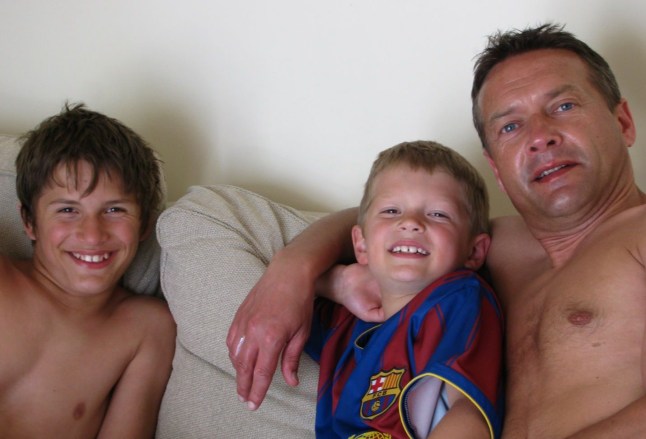

When Ollie Ruscoe was growing up, his dad Simon had been very hands-on.
The pair loved playing football in the garden or going swimming together, and Simon was always there for his son whenever he needed him – whether it was for a lift or a chat.
However, over the past decade, that relationship has reversed, and Ollie has stepped into a caregiving role years before his time.
The first signs that something was seriously wrong appeared 10 years ago when the Ruscoe family were out picking up a new sofa for Ollie’s room.
Simon was driving while mum Emma, was in the front reading the route.
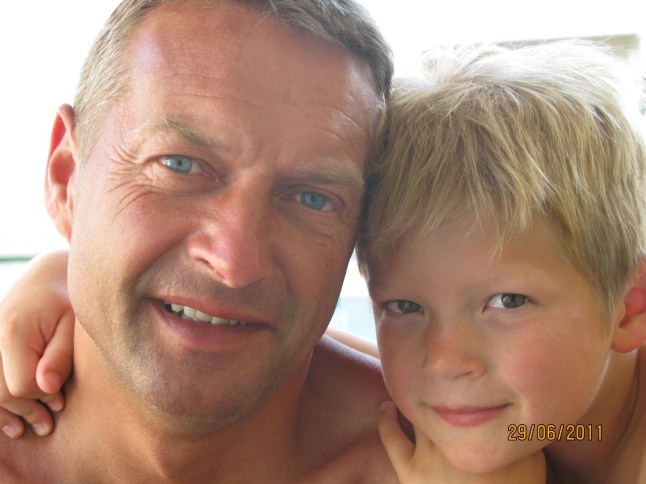
‘She told him to take the next left three times and he kept getting it wrong. That’s when I knew something was up. He was normally really good with directions,’ Ollie, now 24, remembers.
‘It was hard. His personality changed. He became really quiet and stopped going out with friends or to football. And he had all these made-up phrases he’d use – then he just stopped saying them. I didn’t fully understand it at the time, but looking back, I can’t believe I didn’t see it sooner.’
Emma had already been spotting the signs for months. Once confident and capable around the house, one day Simon picked up a drill to hang a picture and stared at it blankly, as though he’d never seen one before.
‘I remember once we were nearly in a crash because he didn’t stop at a junction,’ Ollie tells Metro.
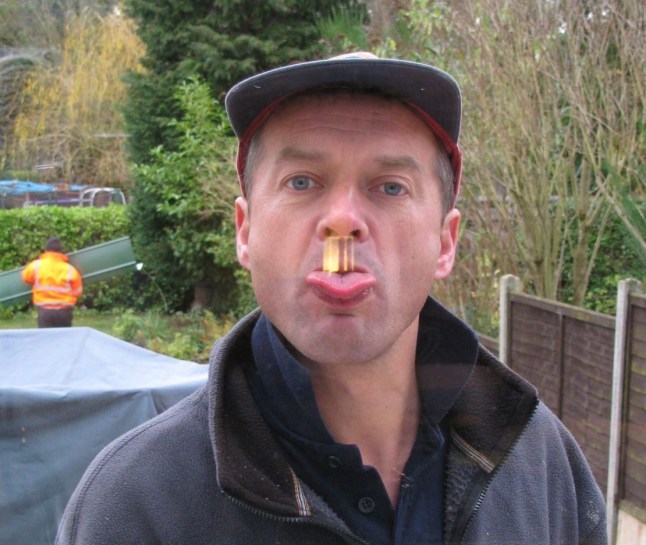
Simon became forgetful, arguments at home increased and in 2018, a psychologist blamed stress. In January, 2020, Simon was finally diagnosed with early-onset Alzheimer’s at the age of just 55.
It was a heartbreaking blow to the family. When Emma told Ollie the news, he went quiet; he didn’t know what Alzheimer’s was or what the implications were.
Today, Ollie lives with his parents in Solihull and works full time as an office administrator. The family follows a strict timetable to ensure Simon is never alone. His older brother Alex, 28, helps out frequently as he lives ten minutes drive away, and during the day, their dad attends a care centre. But outside of that, dementia dictates the rhythm of their lives.
The family can’t all go out at the same time, and Ollie frequently misses out on last-minute pub trips or spontaneous invites – the stuff people in their twenties usually take for granted.
‘There’s a lot of sacrifice, and it can be hard. But I know some people have it worse,’ Ollie says.
Recently,Simon’s decline has accelerated. He no longer speaks, though he still laughs and responds when people talk to him. The most difficult moments are when he becomes aggressive, a common symptom of the disease.
‘You can’t have a conversation. He can walk and pick things up, but he won’t remember doing it. At weekends we watch football, and in summer we sit outside with the dog. Winter’s harder when we’re stuck indoors,’ explains Ollie.
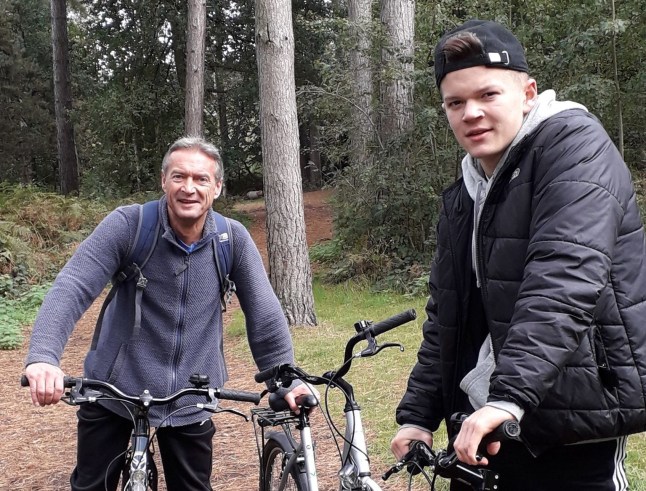
‘We do everything for him now: dressing, showering, going to the toilet, making a cup of tea. He can’t even make himself a drink. But he’s happy – you can tell he’s happy. That makes it worth it.
‘Even if it’s just little things like when he’s falling asleep in the car after I’ve picked him up from the care home. I know I’ve brought him home safely and he trusts me.’
The disease has been unpredictable and though the family have tried to fill recent years with trips away and fun events, it’s been incredibly difficult for Emma and her sons.
‘You never know what’s coming. Day to day feels normal, but when you look back, you realise how much you’ve lost,’ adds Ollie. ‘When he was first diagnosed, he could walk around a buffet on holiday in Mexico. Now I couldn’t imagine that.’

Keep up with the conversations shaping Britain
Hi, I’m Claie Wilson, Metro’s deputy editor.
At Metro, we’re passionate about giving a platform to unheard voices. You can read more real-life stories like this one with our News Updates newsletter.
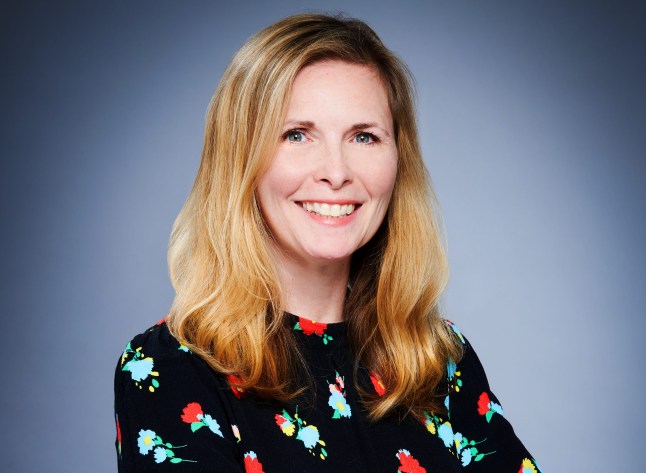
We help people from all walks of life tell stories that inspire, educate and spark change. Sign up now to read them.
Ollie lists the milestones missed: his first legal pint in a pub with his dad, learning to drive with him, going to football games – and just chatting. ‘It’s the talking and the laughs I miss most’, he says sadly.
Still, Simon recognises him. He laughs, hugs, and lights up around people.
Ollie admits it’s been hard watching his mum struggle. And, at first, seeing his friends with their parents in good health was really tough, but they have been a good support to him and always understand why he may have to cancel social plans or miss out on important events.
This month, Ollie and family friend Jimmy are running 48 miles in 48 hours around Solihull to raise money for Alzheimer’s Society, in honour of Simon, who was always the first to go the extra mile for others.
‘I’m trying to run as far as I can on Friday 24 October, then all day Saturday, sticking to normal eating and sleeping. On Sunday 26, we’ll finish at a restaurant we always go to, with friends, family, and Dad will be there to meet me,’ Ollie says.
It’s a poignant date – Sunday will be Simon’s birthday and the timing marks ten years since the family first spotted signs of change.
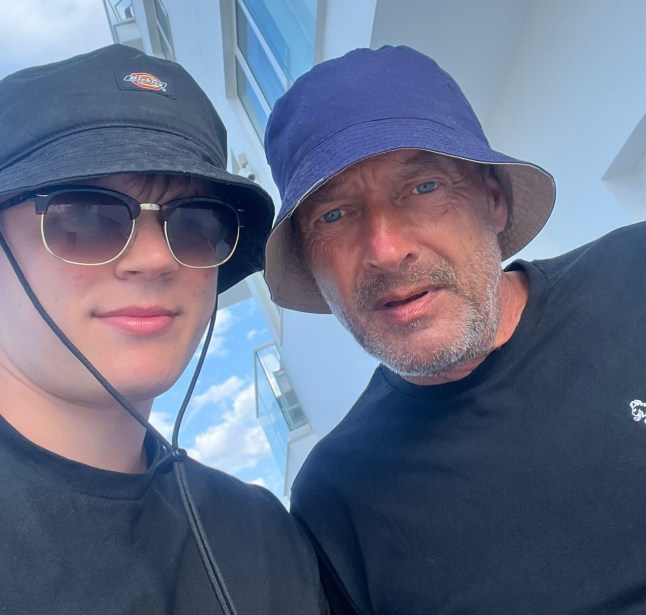
Ollie is new to running – his longest distance so far is 15km – but that’s part of the point, he says.
‘I want it to be hard. Obviously, what my dad is going through is impossible to match, but I want it to be challenging.’ He has raised over £1,000 but is hoping to double this. However, it’s about more than fundraising, says Ollie.
‘I’m learning a lot more about dementia. One in three people will be diagnosed with it. It’s the biggest killer in the UK, and if Dad didn’t have it, I wouldn’t have known that. So I want to raise awareness.’
Seeing his father every day sometimes masks how much he’s changing. ‘But when I look at old photos or think about holidays, it hits me. He’s slipping away.’
Despite everything, Ollie has put his life on hold without complaint. Instead of moving in with his partner Chloe, he’s prioritising caring for his dad. Chloe, he says, has been hugely supportive.
‘Dad was always there for me growing up, so I’m glad to be here for him now,’ adds Ollie. ‘I wasn’t given a choice – but I wouldn’t change anything. I’m treating him the way he taught me to treat others.’
Alzheimer's and dementia: the facts
The most common forms of dementia (symptoms of a decline in brain function) are Alzheimer’s disease followed by vascular dementia.
Alzheimer’s is caused when plaques and tangles form in the brain making it increasingly hard for it to function properly. Early symptoms include forgetting recent events, struggling to remember words, becoming disorientated in familiar places and finding it difficult to concentrate.
Common early symptoms of vascular dementia include problems making decisions or following a series of steps, such as cooking a meal; slower speed of thought and trouble sleeping. The condition can also cause significant mood changes and depression and make people behave completely out of character.
Dementia is the UK’s biggest killer – and one in three babies born today will develop dementia in their lifetime. The risk of developing both Alzheimer’s and vascular dementia roughly doubles every five years from the age of 65. Women and men are affected equally. Diabetes, obesity, heart problems and high blood pressure all increase the risk.
However, you can significantly reduce your chances of developing the diseases by leading a healthy lifestyle – not smoking or drinking to excess, eating a balanced diet and getting regular exercise. Keeping mentally and socially active is also beneficial.
The third most common form of dementia – accounting for an estimated 20 per cent of cases – is Lewy body. With this condition, tiny clumps of protein appear in the brain’s nerve cells, causing a range of issues including mood swings, problems processing thoughts, hallucinations, difficulty balancing and walking slowly. Although DLB (dementia with Lewy body) can affect people under 65, it is much more common as we age, affecting men and women equally.
There is currently no cure for any of the forms of dementia. But getting an early diagnosis is very important in allowing you and your loved ones to access all the medical and social support available. If you are worried that you have any of the symptoms, your GP will be able to refer you to a specialist who can carry out a range of tests.
If you are worried that yours or someone else’s symptoms may be dementia, download the Alzheimer’s Society symptoms checklist, on alzheimers.org.uk; for more information or support on anything you’ve read here, call our support line on 0333 150 3456 or visit our website.
Write Reviews
Leave a Comment
No Comments & Reviews